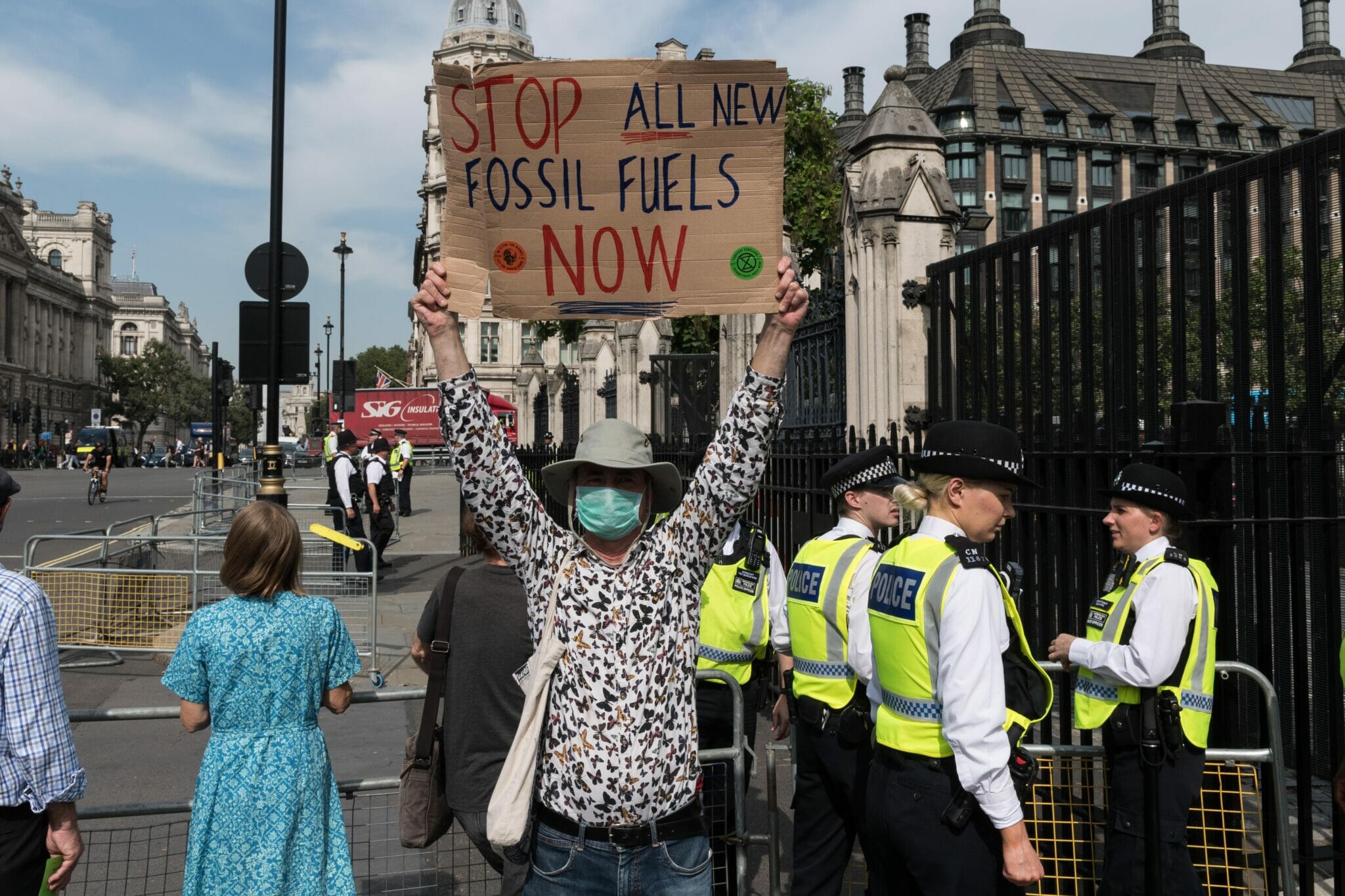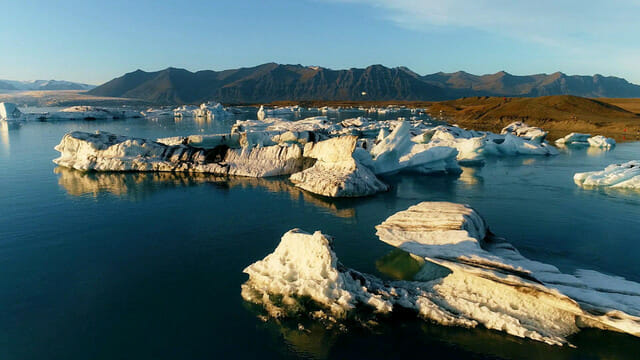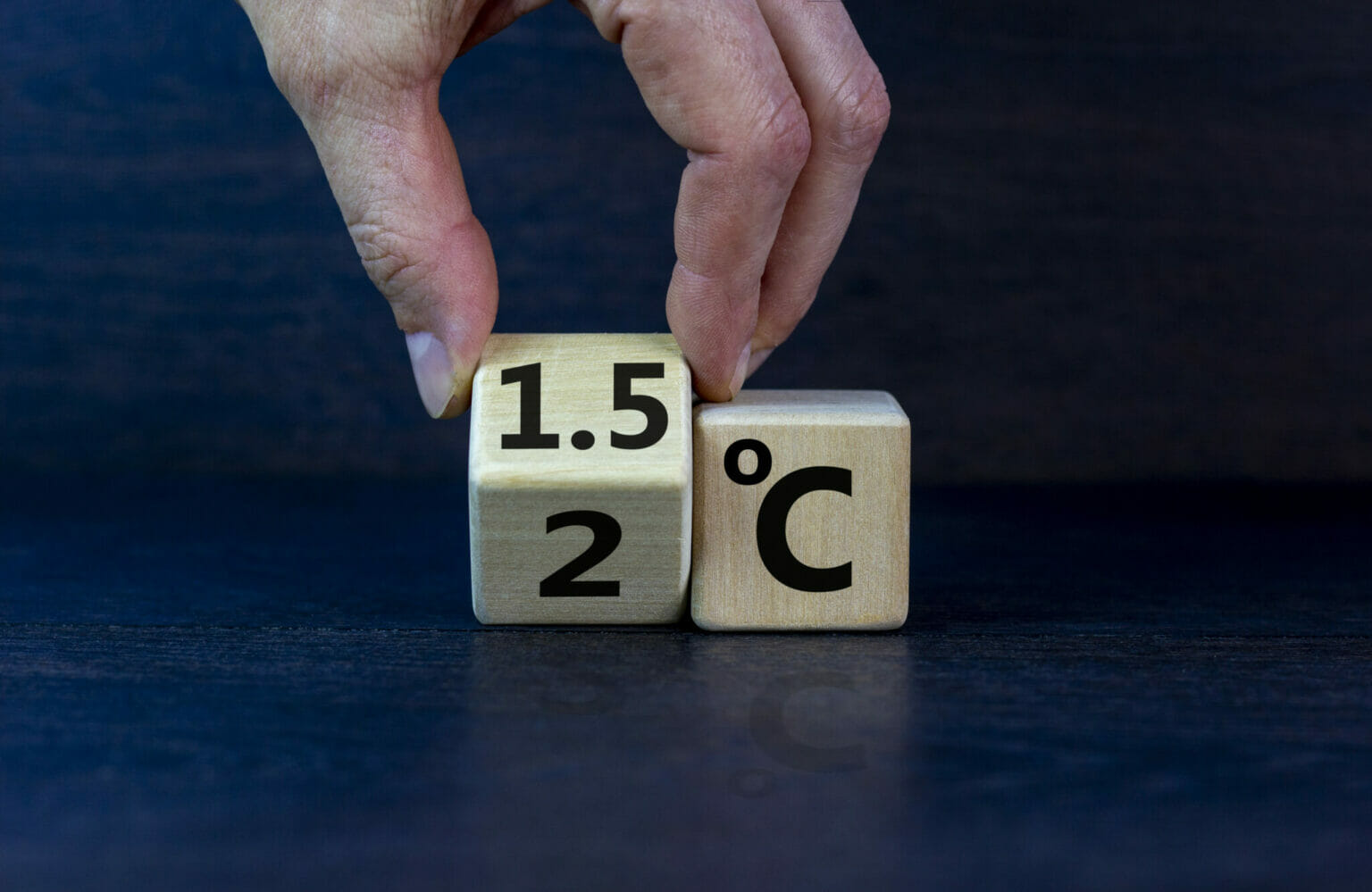Sign up to receive our weekly newsletter.
At noon today, CCNow and Scientific American are co-sponsoring a briefing for journalists on a little-known scientific development that carries paradigm-shifting implications for how people, especially young people, feel about the climate crisis and how governments and societies respond to it.
Climate scientists Michael Mann of Penn State University and Saleemul Huq of the International Centre for Climate Change and Development in Bangladesh will join CCNow for a webinar to discuss these developments ahead of the next major IPCC report out on February 28. This next installment will focus on how climate change affects human beings and life on the planet.
The science that Mann and Huq will discuss was included — but buried — in the IPCC report issued last August, so virtually no one outside the climate science community knows about it. The gist: Contrary to long held assumptions, large amounts of extra temperature rise are NOT locked into the Earth’s climate system.
As soon as emissions are cut to zero, temperature rise stops within as little as three years, not the 30 to 40 years that had previously been calculated. Which means humanity can still limit temperature rise to the 1.5 degrees C target scientists urge — if we take bold, decisive action now.
Journalists still have time to register to attend the briefing and/or receive a recording after the fact.
More from us
Ukraine conflict. In a world increasingly feeling the effects of climate change, the media must examine the role climate can play in igniting and inflaming conflicts, CCNow Executive Director Mark Hertsgaard writes in a Columbia Journalism Review article. Read it.
CCNow awards. The 2022 Covering Climate Now Journalism Awards are accepting submissions until March 1. Learn more and retweet this video to encourage journalists to apply.
Reporting opportunity. As we pointed out in our guide on stories to cover in 2022, the US Interior Department will auction 480,000 acres across six lease areas off the New Jersey shore — the most area ever offered in a single auction — for the development of wind energy on February 23. Learn more.
Noteworthy stories
Megadrought. The extreme drought that the American west has experienced over the last two decades is being made worse by human-caused warming and is the most extreme megadrought in at least 1,200 years. By Gabrielle Canon at the Guardian…
Can’t quit. Since 2019 through last November, banks have channeled $1.5 trillion into coal. Just six countries account for 80% of coal financing, showing how just a few institutions in a handful of countries are keeping one of the dirtiest industries alive. Sam Meredith at CNBC…
Backwards. Virginia’s new governor wants to go backwards on climate policy even as many business interests in the state, including the dominant electric utility firm, make moves toward renewable energy. An op-ed by Mike Tidewell for the Washington Post…
Lessons from Bangladesh. Bangladesh, which has been suffering from some of the worst climate impacts for years, can help lead the world towards more socially inclusive and effective climate adaptation. An op-ed by Saleemul Huq at The Daily Star…
What’s in a name? Calling something “natural” does not mean that it’s safe or environmentally-friendly, as evidenced by the consistent obfuscation of methane’s dangers simply by calling it “natural gas.” By Rebecca Leber at Vox…
Behind bars. The Intercept mapped climate risks, including heat, wildfire, and flood risk data, for 6,500 detention facilities in the US. By Alleen Brown and team at The Intercept…
The enablers. Peel back Big Oil’s strategy and there’s a playbook of ongoing tactics designed to scare consumers, protect fossil fuel interests, and slowdown the transition to clean energy. This podcast looks at how oil and gas companies use PR firms, ad agencies, and law firms to delay climate action. From Climate One…
Available for Publication
The following stories deserve special consideration for publication by CCNow partners:
- Climate Change Shifting the Goalposts for Global Sport – Daily Maverick
- Putting the Ukraine Story in a Climate Context – Columbia Journalism Review
For partner outlets: To submit stories for sharing, please use this form. Instructions for republishing and the full list of stories available for republication can be found in our Sharing Library.
Odds & Ends
Investigating methane. The Global Investigative Journalism Network will host a webinar offering tools and techniques to identify specific methane emitters, find the data, and examine measurement systems. Ahead of the event, they’ve released a new reporting guide on investigating methane. February 24. RSVP.
Pitches. The Fuller Project is looking for freelance pitches on environment and climate stories through a gender lens in the US, particularly in California and the Southeast. Send pitches to pitch@fullerproject.org or DM Holly Ojalvo.
Nexus Media News is looking for pitches on climate justice stories as well as features on the intersection of climate and health or food. Contact Danielle Renwick.
Jobs. Climate Tracker is looking for youth journalists for its paid media mentorship program. The Wall Street Journal is recruiting a reporter, corporate sustainability. The Washington Post is hiring a climate & environment editor.
If you have any feedback on this newsletter, or know of information that should be included here, shoot us a note at editors@coveringclimatenow.org


